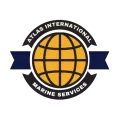
Maritime Partners has achieved a significant milestone in the maritime industry by securing a Design Basis Agreement (DBA) with the U.S. Coast Guard for the M/V Hydrogen One towboat.
It is set to become the world’s first vessel to utilize hydrogen generator technology for its propulsion system.
This approval is a testament to the innovative approach of using e1 Marine hydrogen generator technology, which converts stored methanol into hydrogen on demand.
Methanol is a fuel that is readily available in many ports, making it a practical choice for this application.
A Power Generation Source
The technology was successfully tested in Gothenburg, Sweden, in June 2023, demonstrating its viability as a sole power generation source for vessel propulsion.
This DBA signifies that Maritime Partners can now proceed with deploying their technology, marking a significant step towards the launch of Hydrogen One.
The DBA process is a critical component of the U.S. Coast Guard’s regulatory framework for introducing new and unique technologies to marine vessels.
Environmental Standards
Hydrogen One is designed to be compliant with the International Maritime Organization (IMO) 2030 regulations and the U.S. Coast Guard’s Subchapter M regulations.
The vessel is expected to operate at standard speeds for up to 550 miles before requiring refueling, which is a significant range for maritime operations.

Cleaner, Greener, and More Efficient Alternative
The development of Hydrogen One is part of a broader commitment within the maritime industry to explore cleaner, greener, and more efficient alternative fuel options.
The vessel’s design was a collaborative effort involving industry leaders such as Elliott Bay Design Group, Intracoastal Iron Works, and others, ensuring that the project meets the stringent requirements.
Operations
American Commercial Barge Line (ACBL) will operate the Hydrogen One, which is expected to offer a scalable horsepower range and zero-emission standby power without the need for shore power connections.
The towboat’s use of methanol as a feedstock eliminates the need for compressed or cryogenically stored fuels, which simplifies the logistics and infrastructure requirements.
Fuel-Efficient and Environmentally Responsible
The maritime industry is already recognized as the most fuel-efficient and environmentally responsible mode of transportation compared to road and rail.
The project has faced challenges in arranging and integrating the various systems on the vessel, but the collaboration with proven technologies and partners has been instrumental.
In Conclusion
The Hydrogen One project represents a groundbreaking step towards decarbonizing the maritime industry and showcases the potential for hydrogen generator technology.
With the U.S. Coast Guard’s approval, Maritime Partners is set to lead the way in sustainable maritime transportation.
Found this article interesting, and useful? Please feel free to interact, recommend and share.
If you have any questions about this topic or would like to discuss your own business needs, please contact us today!
